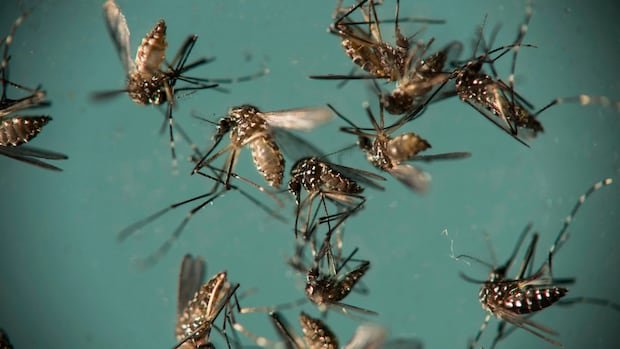Chinese health authorities are taking action in response to an outbreak of a mosquito-borne virus known for causing intense pain. Over 7,000 cases of chikungunya have been documented in Guangdong province, with the majority occurring in Foshan, a city in the southern region. Infected individuals are undergoing quarantine in hospitals until they test negative for the virus. In Foshan, efforts are being made to identify risk factors such as standing water where mosquitoes can breed, with workers conducting home visits for inspections.
To combat the spread of the virus, workers are conducting insecticide spraying in parks and streets. Additionally, measures such as releasing “elephant mosquitoes” and mosquito-eating fish have been implemented to target the disease-carrying mosquitoes. The Canadian government has issued a Level 2 travel advisory advising enhanced health precautions for travelers visiting China in light of the chikungunya outbreak, as well as for regions including Reunion, Mayotte, Mauritius, Madagascar, Kenya, Somalia, Bolivia, and Sri Lanka.
Chikungunya is transmitted by infected female mosquitoes, primarily the subspecies Aedes aegypti and Aedes albopictus, which are also capable of transmitting Zika and dengue viruses. The virus is passed on when a mosquito bites an infected person and subsequently bites another individual. Symptoms usually appear between four to eight days post-bite. The Pan American Health Organization has recorded over 209,000 chikungunya cases in the Americas this year, with Brazil reporting the highest numbers.
Symptoms of chikungunya include fever, severe joint pain, muscle aches, headaches, nausea, and rashes. While most individuals recover within a few days, there have been cases of complications such as eye, heart, and neurological issues, along with prolonged joint pain. Vulnerable groups like newborns, the elderly, and individuals with underlying health conditions are at higher risk of severe symptoms and, in rare instances, fatalities.
Despite the ongoing outbreak, Canadian infectious disease specialist Dr. Isaac Bogoch reassures that there is no cause for alarm among Canadians. He emphasizes the importance of taking precautions against mosquito bites when traveling to regions where chikungunya is prevalent. While a vaccine called IXCHIQ is available in Canada, it is not recommended for individuals over 65 years of age. Bogoch advises travelers to wear protective clothing, use insect repellent, and seek guidance from travel clinics to ensure a safe and healthy trip.

